Related Research Articles
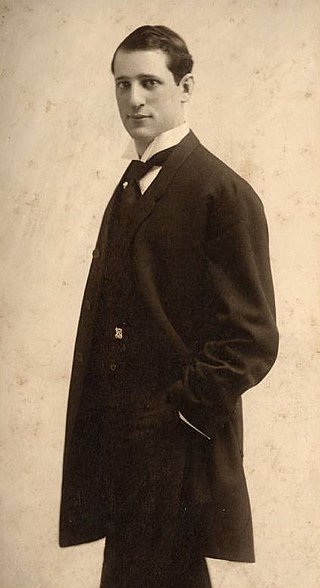
Albert Von Tilzer was an American songwriter, the younger brother of fellow songwriter Harry Von Tilzer. He wrote the music to many hit songs, including, most notably, "Take Me Out to the Ball Game".
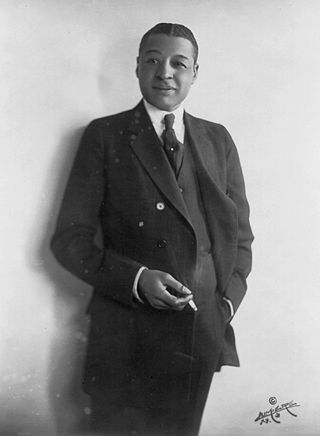
Bert Williams was a Bahamian-born American entertainer, one of the pre-eminent entertainers of the Vaudeville era and one of the most popular comedians for all audiences of his time. He is credited as being the first Black man to have the leading role in a film: Darktown Jubilee in 1914.
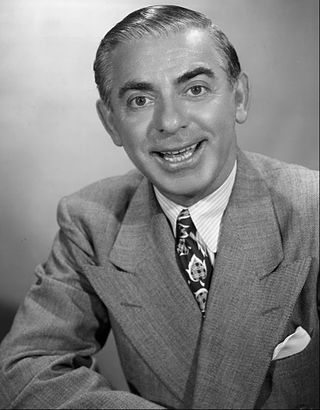
Eddie Cantor was an American comedian, actor, dancer, singer, songwriter, film producer, screenwriter and author. Familiar to Broadway, radio, movie, and early television audiences, this "Apostle of Pep" was regarded almost as a family member by millions because his top-rated radio shows revealed intimate stories and amusing anecdotes about his wife Ida and five daughters. Some of his hits include "Makin' Whoopee", "Ida ", "If You Knew Susie", "Ma! He's Making Eyes at Me", “Mandy”, "My Baby Just Cares for Me”, "Margie", and "How Ya Gonna Keep 'em Down on the Farm ?" He also wrote a few songs, including "Merrily We Roll Along", the Merrie Melodies Warner Bros. cartoon theme.
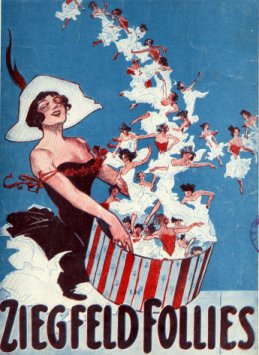
The Ziegfeld Follies were a series of elaborate theatrical revue productions on Broadway in New York City from 1907 to 1931, with renewals in 1934 and 1936. They became a radio program in 1932 and 1936 as The Ziegfeld Follies of the Air.

Mary William Ethelbert Appleton Burke was an American actress who was famous on Broadway and radio, and in silent and sound films. She is best known to modern audiences as Glinda the Good Witch of the North in the Metro-Goldwyn-Mayer movie musical The Wizard of Oz (1939).
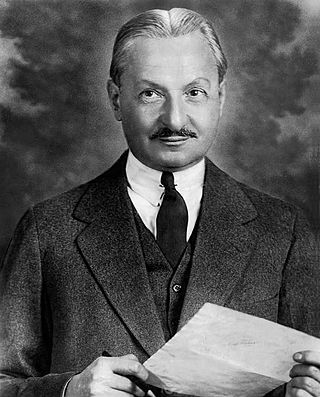
Florenz Edward Ziegfeld Jr. was an American Broadway impresario, notable for his series of theatrical revues, the Ziegfeld Follies (1907–1931), inspired by the Folies Bergère of Paris. He also produced the musical Show Boat. He was known as the "glorifier of the American girl". Ziegfeld is a member of the American Theater Hall of Fame.

Yip Yip Yaphank is a 1918 musical revue by Irving Berlin. He wrote and produced the show during World War I, after he was drafted into the United States Army and was serving in 152nd Depot Brigade at Camp Upton in Yaphank, New York. The military revue was performed by the soldiers of Camp Upton, and moved to Broadway after a brief tryout at the camp.
Nathaniel Davis Ayer was an American composer, pianist, singer and actor. He made most of his career composing and performing in England in Edwardian musical comedy and revue. He also contributed songs to Broadway shows, including some of the Ziegfeld Follies.

Harry Bache Smith was a writer, lyricist and composer. The most prolific of all American stage writers, he is said to have written over 300 librettos and more than 6000 lyrics. Some of his best-known works were librettos for the composers Victor Herbert and Reginald De Koven. He also wrote the book or lyrics for several versions of the Ziegfeld Follies.

Ziegfeld Follies is a 1945 American musical comedy film released by Metro-Goldwyn-Mayer, primarily directed by Vincente Minnelli, with segments directed by Lemuel Ayers, Roy Del Ruth, Robert Lewis, and George Sidney, the film's original director before Minnelli took over. Other directors that are claimed to have made uncredited contributions to the film are Merrill Pye, Norman Taurog, and Charles Walters. It stars many MGM leading talents, including Fred Astaire, Lucille Ball, Lucille Bremer, Fanny Brice, Judy Garland, Kathryn Grayson, Lena Horne, Gene Kelly, James Melton, Victor Moore, William Powell, Red Skelton, and Esther Williams.

Robert Zigler Leonard was an American film director, actor, producer, and screenwriter.
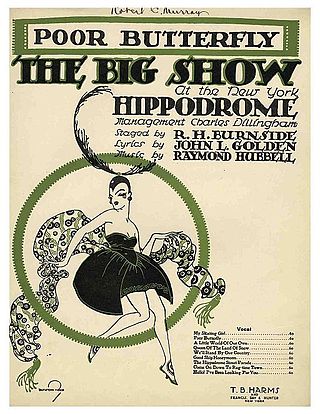
John Raymond Hubbell was an American writer, composer and lyricist. He is best known for the popular song, "Poor Butterfly".
Ballard MacDonald was an American lyricist, who was one of the writers of Tin Pan Alley.
Will Vodery was an American composer, conductor, orchestrator, and arranger, and one of the few black Americans of his time to make a name for himself as a composer on Broadway, working largely for Florenz Ziegfeld. He had offices at the Gaiety Theatre office building in Times Square.
Louis Achille Hirsch, also known as Louis A. Hirsch and Lou Hirsch, was an American composer of songs and musicals in the early 20th century.

John Murray Anderson was a Canadian theatre director and producer, songwriter, actor, screenwriter, dancer and lighting designer, who made his career in the United States, primarily in New York City and Hollywood. He worked in almost every genre of show business, including vaudeville, Broadway, and film. He also directed plays in London.
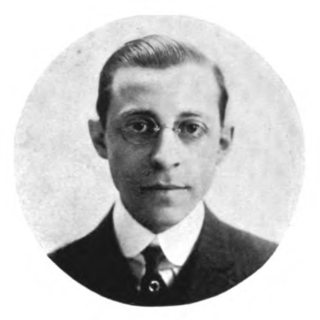
David Stamper was an American songwriter of the Tin Pan Alley and vaudeville eras, a contributor to twenty-one editions of the Ziegfeld Follies, writer for the Fox Film Corporation, and composer of more than one thousand songs, in spite of never learning to read or write traditional music notation. He may have written "Shine On Harvest Moon", a claim supported by vaudeville performer and writer Eddie Cantor. He was also a charter member of the American Society of Composers, Authors and Publishers or ASCAP.
Harold Richard Atteridge was an American composer, librettist and lyricist primarily for musicals and revues. He wrote the book and lyrics for over 20 musicals and revues for the Shubert family, including several iterations of The Passing Show.

"A Pretty Girl Is Like A Melody" is a popular song written by Irving Berlin in 1919 which became the theme song of the Ziegfeld Follies. The first verse and refrain are considered part of the Great American Songbook and are often covered as a jazz standard.
The Darktown Follies were a series of musical revues staged in Harlem at the Lafayette Theatre from 1913 through 1916. All of the revue's creators were black, and it was one of the earliest musical revues to feature an all-black cast. Most of the music and lyrics written for the various reviews were created by J. Leubrie Hill and Will Vodery. Hill was also a major contributor to the musical books written for the revues, along with the writer Alex C. Rogers. Part of the age leading up to the Harlem Renaissance, the revue attracted diverse audiences from all over the city of New York. The theatre impresario Florenz Ziegfeld Jr. attended performances, and purchased some of the content of the Darktown Follies for use in his Broadway musical revue, Ziegfeld Follies.
References
- 1 2 3 4 "J. Leubrie Hill (John Leubrie), d. 1916". Library of Congress.
- ↑ "At the Ball, That's All: J. Leubrie Hill".
- ↑ "New York Clipper 15 November 1913 — Illinois Digital Newspaper Collections". idnc.library.illinois.edu.
- ↑ "Hill, J. Leubrie - Discography of American Historical Recordings". adp.library.ucsb.edu.
- ↑ "Portrait of J. Leubrie Hill and his famous Dark Town Follies of 1914 and 1915". NYPL Digital Collections.
- ↑ "Hill, J. Leubrie -1916 (John Leubrie) [WorldCat Identities]".